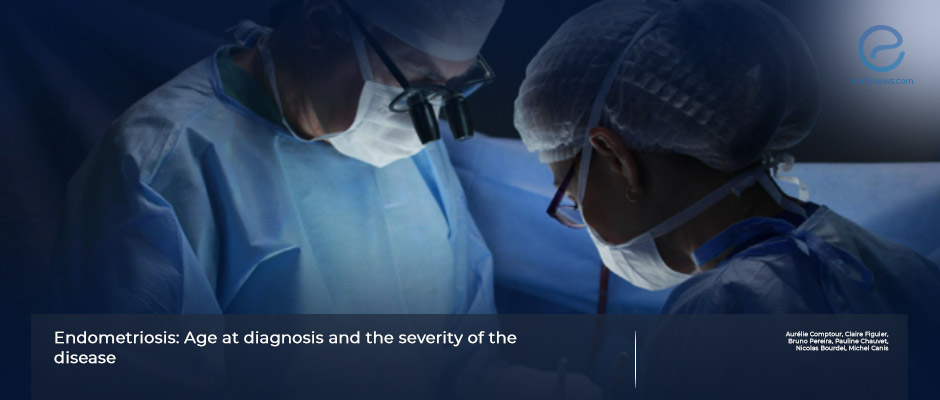Is there any relationship between age at diagnosis and the severity of endometriosis?
Apr 16, 2024
Increasing age at diagnosis of endometriosis does not affect the severity of the disease and the size of the endometriotic nodules.
Key Points
Highlights
- Diagnostic endometriotic lesions during operation, the intensity of pain, and the quality of life do not worsen with increasing age at diagnosis.
Importance
- The fact that the age at diagnosis of endometriosis does not affect the severity of the disease supports that, contrary to common belief, endometriosis may not be a progressive disease.
What’s done here
- This cross-sectional multicenter observational study was conducted to assess the association between age at diagnosis and the severity of the disease, pain intensity, and quality of life in women newly diagnosed with endometriosis.
- The intensity of pelvic pain including dysmenorrhea, dyspareunia, or chronic pelvic pain was scored using a visual analog scale (VAS).
- During surgery, bipolar coagulation or peritoneal excision was performed for peritoneal lesions whereas endometriomas were managed by cystectomy.
- Shaving, colorectal resection, or segmental resection was performed depending on the size and invasion of the rectovaginal nodules.
- Quality of life both physically and mentally was assessed using short form-36 (SF-36), a multi-dimensional validated scale.
Key results
- A total of 964 reproductive-aged patients diagnosed and treated by laparoscopy were included.
- Deep endometriotic nodules larger than 2 cm were found to be less common in older patients.
- There was no significant association between age and active implants, adhesion scores, or the severity of the disease in terms of rAFS stage.
- For dysmenorrhea, dyspareunia, and chronic pelvic pain, patients aged <25 years were more likely to have pain intensity VAS≥7.
- Age groups did not differ significantly in SF-36 physical and mental terms.
- No significant association was detected between rAFS stage and pain intensity and quality of life.
Strengths and Limitations
- The large sample size and inclusion of newly diagnosed patients are the main strengths.
- The study design several years after data collection and non-inclusion of asymptomatic patients and women aged less than 20 years are the limitations.
Lay Summary
Endometriosis is an estrogen-dependent gynecological disease mostly encountered in reproductive-aged women. Early diagnosis is important, as endometriosis impairs the quality of life. The most accepted theory is that endometriosis is a progressive disease and its stage increases with age.
Dr. Comptour et al. from France published a study titled “Endometriosis: Age at Diagnosis and the Severity of the Disease” in the Journal of Gynecology Obstetrics and Human Reproduction.
The authors sought to investigate the effects of age at diagnosis of endometriosis on the severity of the disease, pain intensity, and quality of life. They included the patients newly diagnosed and confirmed histopathologically for endometriosis after laparoscopic procedure. They found deep endometriotic nodules larger than 2 cm were less common in elderly women. For dysmenorrhea, dyspareunia, and chronic pelvic pain, patients aged <25 years were more likely to have higher pain intensity , compared to elderly women. Age groups did not differ significantly both physically and mentally in SF-36. No significant association was detected between rAFS stage and pain intensity and quality of life.
“This study also highlights the need for new theories to be elaborated that allow prospective research, essential for both better understanding of the pathophysiology of this disease and improved patient care,” the authors added.
Research Source: https://pubmed.ncbi.nlm.nih.gov/38467186/
endometriosis quality of life pain progressive disease nodule size rAFS classification

